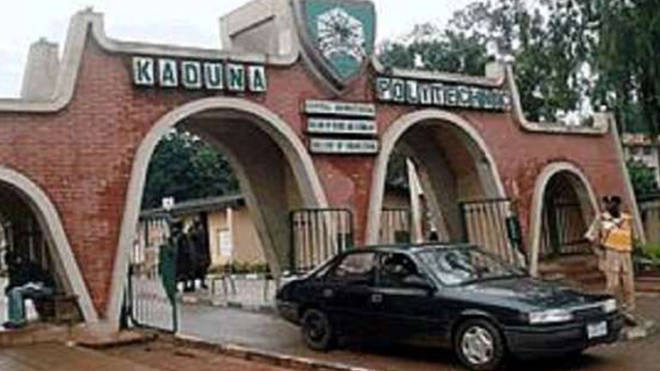Kaduna Polytechnic, charting a new course
Exactly one year ago, the story of Kaduna Polytechnic was that of a higher institution of learning in its most trying moment. It was a case of perpetually distorted academic calendar, disoriented staff and dislodged students. It was barely holding on with dilapidated and decayed physical infrastructure. This should not have been the situation of […]

Exactly one year ago, the story of Kaduna Polytechnic was that of a higher institution of learning in its most trying moment. It was a case of perpetually distorted academic calendar, disoriented staff and dislodged students. It was barely holding on with dilapidated and decayed physical infrastructure.
This should not have been the situation of Kaduna Polytechnic, which is the pioneer technology institution in northern Nigeria, established in 1956 (as Kaduna Technical Institute). This is a Polytechnic with more than 160 PhD holders. It has more equipment in its engineering department than many Nigerian polytechnics put together.
But with the coming of Prof. Idris Bugaje, who was the immediate past Director General of the National Research Institute for Chemical Technology and a former Rector of the Federal Polytechnic Nasarawa, things have changed for the better.
In the face of these daunting challenges, the new Rector, Idris Bugaje went about the task with uncommon determination and zeal. He quickly engaged the academic staff, met some of their needs and promised to address the rest as situation improved. He was able to convince them that they were his prime partners in the future of the polytechnic, describing them as ‘the conscience’ of the system.
Bugaje tackled the issue of stagnation by promoting all those that satisfied the promotion criteria. Some had been on the same level for more than 10 years. Some had not been confirmed for more than 20 years! One year later, Bugaje has promoted more than 1100 staff of Kaduna Polytechnic.
To institute the culture of financial accountability and transparency, he employed a financial solutions technology that monitors all funds inflow and outflow for the polytechnic. This information is made available to all key stakeholders in real time. This eliminated the culture of rumours about the financial standing of the polytechnic with resultant sanity and propriety in the demands of all organs of the institute.
The administration instituted a zero-tolerance policy for academic and financial corruption and chased them with unbridled drive. The issues of extortion, sexual harassment and criminality were engaged tactfully and effectively.
Bugaje decentralized powers from the Rector’s office to allow for decision-making closer to the root of problems. With the decentralization, the Rector is now able to have a finer, neater grip of the internal mechanisms while adequately exploring external sectors for the development of the Polytechnic.
This approach allowed the Management to reassure TETFund such that TETFund released some of the outstanding allocations. The Management was able to convince some participants in the private sector to partner with it in providing solutions for the dilapidated accommodation infrastructure, such that a Public Private Partnership has just been signed to provide befitting accommodation facilities on the campuses.
Other collaborations with universities in Malaysia and India were entered into to upgrade the quality of training and research outputs of the polytechnic. Recently, Kaduna Polytechnic and ABU Zaria agreed to jointly run degree programmes in eight core disciplines that included engineering and architecture.
Beyond this, Bugaje has introduced a new Centre for Technology Development (CTD) in the guise of those obtained in the advanced world. The Centre aims to bring together the academia, the industry and the private sector to provide technological solutions for development.
In just one year, the new administration of Kaduna Polytechnic has remodelled the inner working mechanisms as well as the outlook of the institution. It has reinvented the business arm of the polytechnic, the Kadpoly Consult Limited, into a profitable venture. It has also produced the first strategic plan document that will chart the course for development spanning the Year 2018 to 2023 with all stakeholders on board.
These are some of the dividends that are being received by Kaduna Polytechnic as it enters a new vista that will surely help it to reclaim its prime status in the provision of quality education in Nigeria.
Auwal S. Anwar wrote from Tafawa Balewa Way, Kaduna, and can be reached at: [email protected]
